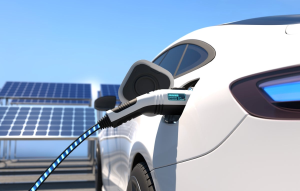Sales of Toyota bZ4X e-SUV remain sluggish due to various reasons

Toyota bz4x 2023
The 2023 Toyota bZ4X electric SUV continues to struggle to attract desired number of buyers in the US market, and a number of reasons are to be blamed for lower demand for the EV. Based on the Electric-Toyota New Global Architecture (e-TNGA), the bZ4X e-SUV went on sale in the second quarter of last year, but because of an unfortunate wheels-related recall, the company had to pause deliveries of the vehicles. Sales restarted in final quarter of the same year. In the first quarter of this year, the company sold 1,698 units of the e-SUV, taking the total units sold across the US market to 2,918 units.
Apart from the aforementioned recall, there are some other things that might affect the sales of the e-SUV, including its mediocre driving range and the lack of its eligibility for the federal government’s tax credit of $7,500.
The e-SUV in question is mainly available in two versions – front-wheel drive (FWD) with a single 150-kW e-motor and a 71.4-kWh battery and an all-wheel drive (AWD) with two 80-kW e-motors (total output 160-kW). The former features Panasonic’s lithium-ion battery cells, while the later features a different 72.8-kWh CATL’s lithium-ion battery.
The Toyota bZ4X XLE AWD 18-inch covers just 228 miles (367 km) per charge, which is down 24 miles when we compare it with the XLE FWD. The bZ4X Limited AWD 20-inch offers even shorter range of 222 miles (357 km). It is down 6 miles as compared with the XLE AWD.
The aforementioned data shows that the highest range is being promised by the entry-level version that comes equipped with the 71.4-kWh battery and a single e-motor. Switching to the AWD version trims down the EPA Combined range by almost 10 per cent, even as AWD version’s battery has 2 per cent more capacity (72.8 kWh).
When it comes to energy consumption (including charging losses), the entry-level trim promises 119 MPGe or 283 watt-hours per mile or 176 Watt-hours per km. Switching to 20-inch wheels increases brings about 114 MPGe or 296 Watt-hours per miles or 184 Watt-hours per km. The AWD versions are even less efficient at 324 Watt-hours per mile or 201 Watt-hour per km.
In terms of pricing, the Toyota bZ4X is quite competitive as it starts at just $42,000 and $44,080 (exclusive of $1,335 destination charge) in FWD and AWD configurations, respectively. However, the e-SUV isn’t eligible for the $7,500 federal tax credit as it is an imported model.





